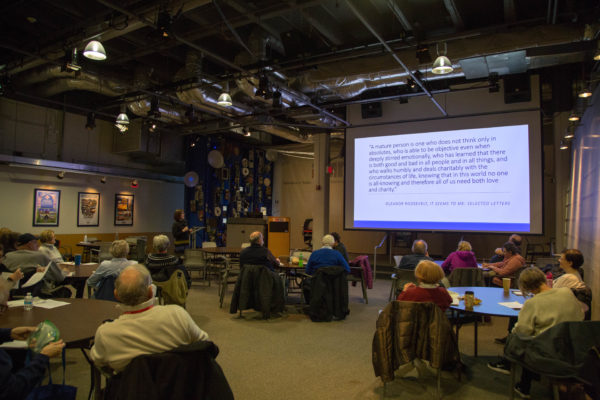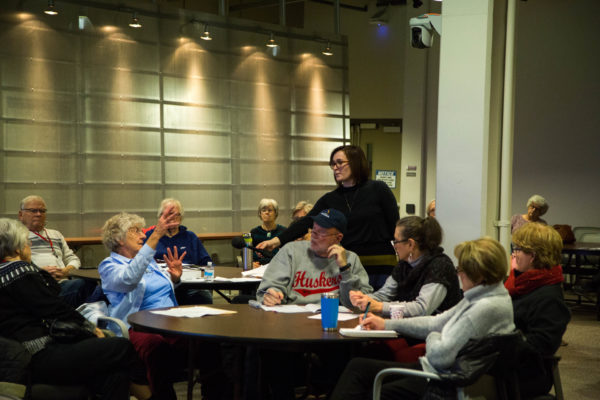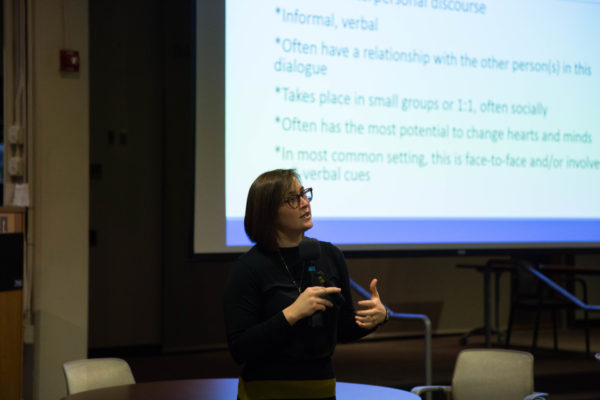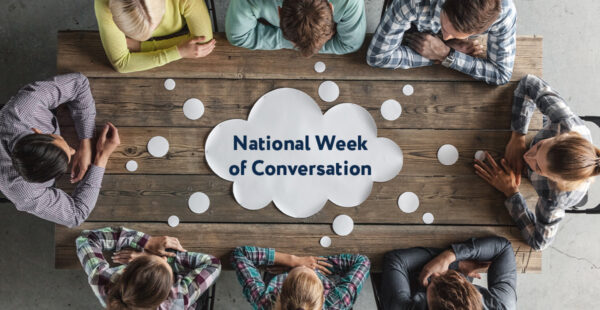In an era of polarized politics and shouting candidates, civil discourse can seem like a quaint relic of a bygone era. Rather than constructively engage with others, we all too often retreat into our self-constructed echo chambers.
Sounds comfortable and safe, but here’s the problem: That’s un-American and dangerous. To flourish, democracy needs a robust exchange of ideas, especially among people who don’t necessarily see eye-to-eye on everything. Even as an already-contentious 2020 presidential campaign kicks into high gear, there are big windows of opportunity to communicate in a civil manner.
That’s where Civic Nebraska comes in.

Over the past six weeks, Deputy Director and Director of Civic Health Programs Amanda Barker has led a weekly class on civil discourse for participants in the Osher Lifelong Learning Institute at the University of Nebraska. The course, which meets at NET headquarters on Nebraska U.’s East Campus, provides the roughly 70 participants key tools to engage productively on what otherwise might be polarizing topics.
“In the immediate sense, civil discourse is important considering we have a presidential election this fall,” Amanda says. “For our civil society to function, we must be able to respectfully engage in dialogue about important issues and candidates so we can make informed choices in November.”
But in the bigger picture, she said, the course highlights the need to recommit to the American tradition of arguing festively, passionately, and constructively.
Often, she said, civil discourse is equated with politeness – incorrectly. Politeness is about maintaining decorum and, in some instances, avoiding difficult or hot-button topics to keep the peace.

Civil discourse, on the other hand, is engagement-oriented. It’s fact-based. It’s not aimed at “winning” the argument. It assumes both sides have their community’s interests in mind. And it’s a pathway forward to help solve the entrenched issues of the day.
The class, officially titled Civil Discourse: For the Common Good, is among Civic Nebraska’s work to provide civic health training and programs across the state. OLLI, which offers courses, events, travel opportunities, and lectures to adults 50 and up, is a perfect partner in that effort, Amanda said.
“We all could use some strong doses of civility in these times, and I’d like to pick up some tips from professionals,” said Norm Smith, a student in the course.
This is the third iteration of the OLLI course; it was first launched following the cantankerous 2016 general election. Three Lincolnites – Charlyne Berens, Polly Feis, and Kathleen Rutledge – approached Civic Nebraska to discuss the challenges that came from such a divisive election. Throughout that post-election conversation, the group acknowledged that information about and training on civil discourse for Nebraska adults was lacking. And so, the course was born.

“My aim is to help them feel more confident and polished in their civil discourse skills, no matter the setting. Civil discourse is very much a muscle, and over the course of the last several years, many people have been nervous about engaging with others who hold different beliefs – but, that doesn’t help us keep our civil discourse skills sharp,” Amanda said. “This class is focused on the why, but also the how of civil discourse.”
The six-week syllabus includes an introduction to civil discourse, a deep dive on its four “spheres,” and a focus on how changes in media affect discourse.
The four “spheres” are interpersonal, public, online, and in media: Interpersonal is informal and verbal; public is formal and verbal; online is informal and written; media is formal and written. Guest speakers, including elected officials, share their thoughts about how important civil discourse is in their roles.
“To bring forth the best ideas, represent all voices, and find those commonalities that bind us all, civil discourse is critical,” Amanda said.
To learn more about our Civic Health Programs, click here.




